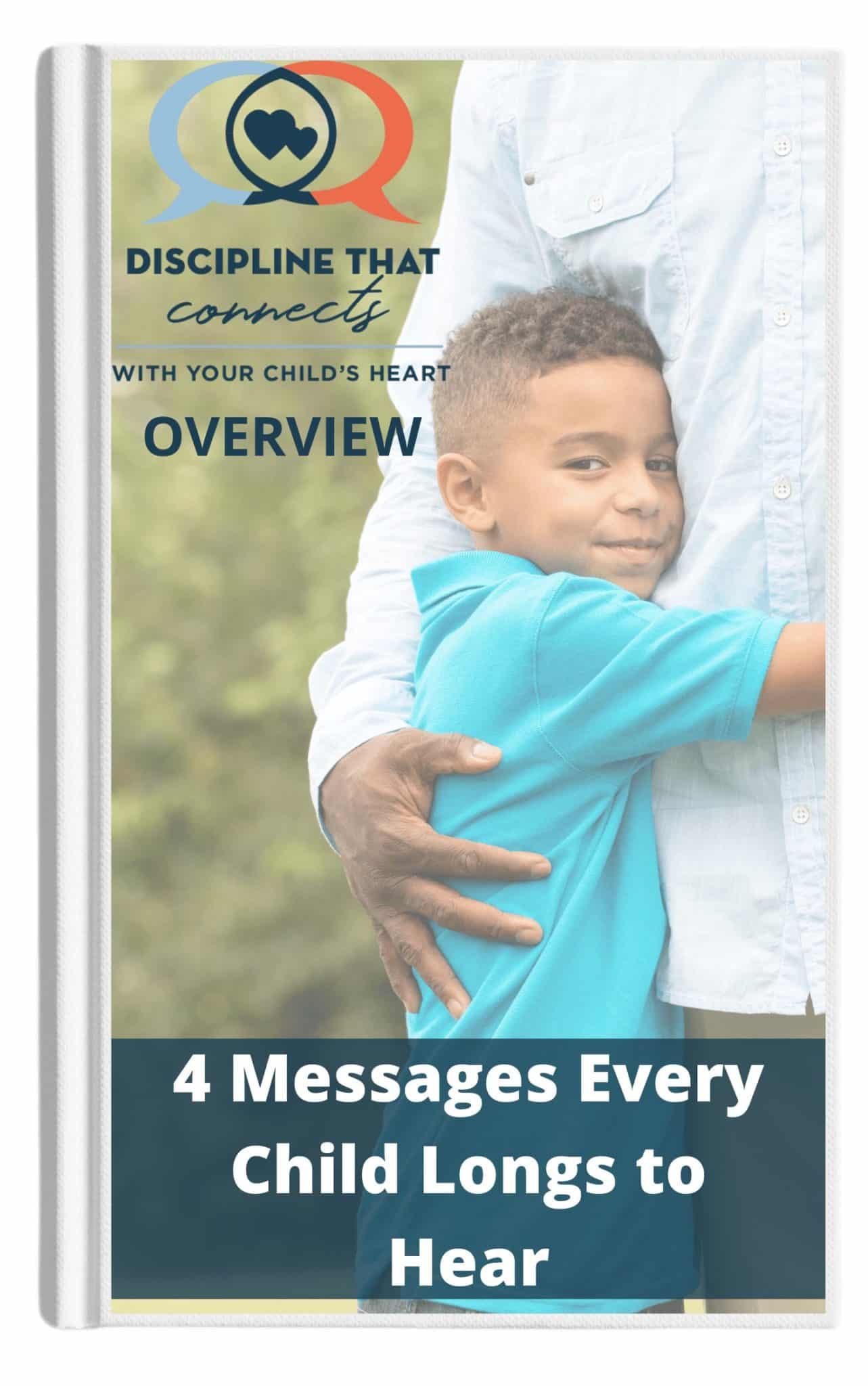
You Really Want To Show Loving Discipline? Start With Your Face.

If you’re reading this right now, you likely want to show love to your kids, even in discipline. You probably already believe unconditional love means loving your kids during misbehavior. You don’t need to be convinced of the benefits of loving discipline.
But your face? That’s a little tougher. Your face says a lot to your kids. Before the first words roll off your tongue, you’ve already begun communicating.
Studies show that 60% – 90% of all communication is nonverbal, with 55% related to the face alone.
But does your face communicate loving discipline?
Take a common scenario like your child leaving a trail of food, wrappers, or toys. What might go through your mind at a time like that? “I’ve talked to him about this for weeks, numerous times a day, and nothing has changed! This place is constantly a mess!”
With all those negative thoughts going on inside, it’s sure to show up on your face. Your facial expressions may be sending messages like,
- “Child, you are a disappointment.”
- “Child, you are hopeless.”
- “Child, you are a walking mess!”
- “Child, you are a problem.”
Want to know if your face is communicating love during your child’s misbehavior?
Take a look at your child’s face. Their face often shows us what messages they’re receiving. Perhaps some fear. Maybe anger. Or the one that gets many parents’ blood boiling: defiance!
If your child regularly sees these negative messages on your face, they begin to own them as their identity. “I am a walking mess. I am hopeless. I am a disappointment to my parents.” This cycle can keep you and your child stuck in hurtful patterns.
Prefer to listen?
In the podcast “Calming Yourself BEFORE Going Into Discipline” Jim and Lynne Jackson dive deep into this topic. Listen in! You’ll be glad you did!
It’s not hopeless: You can teach your face to show loving discipline
What steps can you take to change your patterns of facial expression and communication? How can you send messages of God’s grace and truth to your kids and communicate your love for them, even in the midst of the struggle?
Transform the source of your expressions
I am not suggesting you grit your teeth and fake a smile when you’re angry at your child. But if you want to engage more peacefully with your child:
- Start by considering God’s gracious face for YOU when parenting is stressful.
- Then, identify grace-filled truths about your child. What we believe and think will determine how we feel, look, and act.
Sometimes when I’m struggling, I’ll pray a simple prayer like, “God, how do you see my child? What is true about her?” When I ask these questions to God, I get a different perspective than the one I’m holding. Then I repeat things to myself that I know are true about my kids. Things like:
- “This is a season of growth and learning for my child.”
- “I can help build wisdom in my child when I’m calm.”
- “This moment doesn’t define me or my child.”
Practice “loving discipline” in your face when the heat ISN’T on
If you are going to change some well-worn patterns, you’ll need to practice. So try the following unconventional experiment…in a little privacy. 😉
- Identify a typical, frustrating misbehavior.
- Stand in front of a mirror with your eyes closed, and out loud address the misbehavior as you usually would. Open your eyes as soon as you near the end of your sentence and note your facial expression. What does it communicate?
- Now watch your face as you respectfully address the misbehavior, and make the face you want your child to see when they are struggling. What do you see? Pay particular attention to your eyes and eyebrows, where most facial emotion is communicated.
Step back and relax your face before addressing misbehavior
When the heat is on, and it’s “go time”, – take a slow breath as you repeat a helpful, grace-filled truth; lift your eyebrows and relax your face. Doing this will help change your brain chemistry and prepare you to communicate God’s extraordinary grace and mercy to your child.
As I raised my daughters, who are now young adults, I became more aware of these dynamics in my own parenting. Although I could be frustrated, I would pause to calm my heart and ensure my face was relaxed and non-judging. My daughter’s faces would often match mine—pleasant and calm—and we could have a brief, productive conversation. (My furrowed brow and steely-eyed gaze did NOT tend to elicit a positive response!)
May your face demonstrate God’s unconditional love, especially during misbehavior
So consider how you would like your face to reflect God’s grace and truth when interacting with a misbehaving child. God calls us to seek His face when we are in our “day of trouble:”
You have said, “Seek my face.”
My heart says to you, “Your face, Lord, do I seek.”
May your face represent the safety, love, and wisdom of God as you guide your children!

4 simple messages.
1 simple framework.
Get the FREE ebook, and start your journey toward better, more connective discipline in your home.




